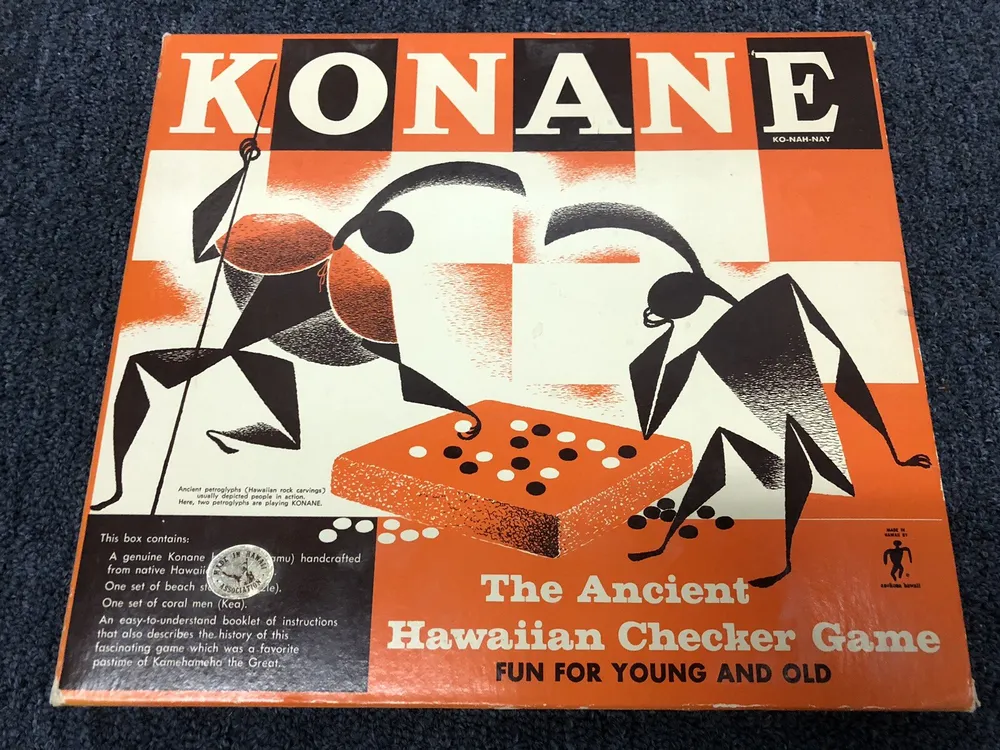Konane (1775)
Konane
Konane is a traditional two-player strategy board game from Hawaii that was invented by the ancient Hawaiian Polynesians. It was played in preliterate Hawaii and was popular among all classes, with men and women often playing together. The game was played on a rectangular grid of indentations or holes, with pitted slabs with rows of holes for playing Konane found on the front of the platform of many houses. Portable game boards were also common. Konane declined in popularity after the arrival of Westerners, but in recent decades, native pastimes have begun a resurgence, and today, students in schools emphasizing Hawaiian culture learn to play Konane as early as first or second grade.
Why is Konane Popular?
Konane is significant because it is a traditional Hawaiian board game that has been played for centuries and is still played today. It requires strategic thinking and is similar to other board games like draughts and chess. The game is also significant because it was played by men and women of all stations in life, and especially enjoyed by older men. Huge bets might be laid on a Konane game, with the stakes ranging from goods, such as kapa blankets and clothing, lau hala mats, jewelry, land, sexual favors, or even one’s own life. Konane figures in the saga of Lonoikamakahiki, a great chief credited with creating the first kahili and instituting the Makahiki games.
We are supported by our audience. When you purchase through links on our site, we may earn an affiliate commission, at no extra cost for you. Learn more.

